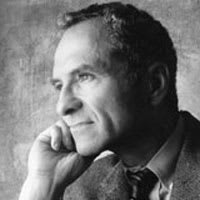Mit Professor Blackjack
Many gambling legends make their mark in casino gaming and fade away. While these legends may get rich from their exploits, they never attain fame in any other niche.
Edward Thorp is an exception to the norm. The “Father of Modern Card Counting” is not only a blackjack icon but also an investment guru.
The Professor of Blackjack Dr. Thorp is an American hedge fund manager who began his career as a professor of mathematics at MIT. In between those two endeavors he visited Las Vegas, played some blackjack, became enamored of the game’s continually changing house edge and wrote the most famous. BlackJack Basic Strategy was developed by MIT mathematics professor Edward O. Thorp using rigorous computer simulations and analysis. It has been theorized upon and expanded by numerous blackjack analysts over the years, most notably Stanford Wong (author of Professional Blackjack and other fine books on the subject). The Movie 21 – How Hollywood Made the MIT Blackjack Team Famous. At last, it is time to take a look at the movie 21, which popularised the MIT blackjack team and card counting as a whole. The plot revolves around the main character Ben Campbell, who is recruited into the MIT blackjack team by his professor Micky Rosa, played by Kevin Spacey.
With an $800 million net worth, Thorp is something of a mini Warren Buffet. In fact, he gained much of his fortune by betting on Buffet’s company, Berkshire Hathaway.

You can read more about Thorp and his stellar blackjack and investing accomplishments below. You’ll also see if it’s possible to emulate Thorp’s rise to success today.
Why Is Edward Thorp a Blackjack Genius?
Born in 1932, Edward O. Thorp’s early live revolved around schooling. He graduated from the University of California with a Ph.D. in math.
After graduating, he moved across the country and began working at the Massachusetts Institute of Technology (MIT) – which, coincidentally, spawned the MIT Blackjack Team.
Thorp earned his first professor job at New Mexico State University. He taught mathematics here from 1961 until 1965.
During his time at New Mexico State, Thorp listened to colleagues discuss how the house can’t be beaten in gambling. He decided to put this theory to the test.
Using an IBM 704 computer, Thorp began studying the probabilities of blackjack. Drawing inspiration from the Kelly criterion, he eventually developed card counting and betting schemes that could beat the game.
Blackjack card counting wasn’t new at the time. A group of former Army veterans named “The Four Horsemen” devised a rudimentary counting system. However, their strategy could only lower the house advantage—not beat it.
He developed the “Thorp Count,” which is capable of giving players a notable edge in single-deck blackjack games. At the time, single-deck blackjack was widely available in Nevada.
So, he traveled to Nevada with Manny Kimmel, a professional gambler and former bookmaker. They first visited casinos in Lake Tahoe and Reno, winning $11,000 in profits over one weekend.
He and Kimmel also hit Las Vegas casinos during the trip. They continued their winning ways and used disguises to hide their identities.
In 1962, Thorp decided to put his blackjack knowledge into writing. He released Beat the Dealer, which taught amateurs how they could profit from blackjack. Beat the Dealer immediately became a New York Times bestseller after selling 700,000 copies.
Success in Other Gambling Ventures
Thorp didn’t set out to beat blackjack for the money. Instead, he did so as an academic exercise to prove that the house can be toppled.
After showing that card counting works, he set out on other gambling related pursuits. While a professor of mathematics at the Massachusetts Institute of Technology (MIT), he became the first gambler to use a roulette computer.
Thorp, an MIT colleague, and his wife, Betty, visited Las Vegas to play roulette. They wore a mini computer to calculate the wheel and ball velocity. They’d use this information to predict the ball’s resting spot and place bets accordingly.
Of course, roulette computers are illegal in every gambling jurisdiction today. But Thorp used one before any jurisdictions outlawed them.
His gambling successes didn’t come without their downsides. Casinos caught onto his exploits and tried every trick in the book—and even some not in the book—to stop him.
Casinos regularly served him alcohol in hopes that he’d take the bait and start losing. Thorp even noticed that the accelerator linkage on his car had been altered while driving home from Vegas.
He didn’t directly accuse any of the casinos of trying to cause him harm. However, he did note that readers could draw conclusions on who tampered with his vehicle.
Move Into the Investment World
Edward Thorp conquered the gambling world when he didn’t even care about the winnings. Already one of the top professional gamblers without trying, he decided to move onto another pursuit.
Of course, looking for undervalued stocks has never been a closely guarded strategy. But Beat the Market discusses doing so in an in-depth manner.
Encouraged by another successful book, Thorp launched his own hedge fund called Princeton Newport Partners. For 20 years, Princeton Newport became one of the most-successful hedge funds in the game before disbanding.
It netted an average annual return of 19.1% during this span. It was also the first fund to successfully employ quantitative analysis in the stock market.
Big Success With Berkshire Hathaway
Founded in 1969, Princeton Newport Partners had plenty of general success. However, no move by Thorp nor this hedge fund was as big as buying Berkshire Hathaway stock.
Thorp met Berkshire’s owner, Warren Buffet, in 1968. He didn’t actually invest in the company, though, until 1982, when its stock was $982.50 per share.
Waiting to buy didn’t hurt Thorp too badly. Each Berkshire Hathaway share is worth over $297,000 today.
During an interview with Barron’s, Thorp describes his meeting with Buffet and how he ultimately decided to buy their stock years later:
“One good stroke of good fortune was meeting Warren Buffett in 1968. It led me to realize that I needed to invest in Berkshire Hathaway, although I didn’t do it until 1982. It’s my single investment in the stock market. […] I also have some hedge funds, but I consider them not as good as Berkshire, so I use them to spend and finance other things I do.”
Where Is Ed Thorp at Today?
Even at 87 years old, Edward Thorp is still active in the trading world. After 30+ years of successful trading, he’s currently worth $800 billion.
The Beat the Market and Beat the Dealer author continues to reap profits from his Berkshire Hathaway shares. Thorp hasn’t divulged exactly how many shares he owns.
However, he did note that Berkshire Hathaway is the only stock in his portfolio. Considering that Berkshire is one of the best-performing companies over the past few decades, this is definitely a good thing.
Can One Still Go From a Casino Pro to a 9-Figure Investor?
Edward Thorp didn’t just start playing real money blackjack at a time when the game was vulnerable. He invented the original method for beating it!
He and Kimmel made $11,000 during their first weekend of using the Thorp Count. When adjusted for inflation, this amount is worth over $95,000 today.

Assuming you knew Thorp’s secrets in 1961, you could’ve made seven figures by hitting different casinos. You’d have earned eight figures when accounting for inflation.
From here, you could’ve taken the money and invested it to eventually make yourself worth $100 million or more (nine figures). Of course, this scenario amounts to nothing more than hindsight.
Thorp quickly blew the cover off his secrets with Beat the Dealer. Kimmel wasn’t happy about this either, because he planned on making a long and lucrative career out of card counting.
Thorp’s revelation kicked off a game of cat-and-mouse between players and casinos. The latter have been aware of and looking for card counters ever since.

They’ve also added decks to the shoe and instated unfavorable rules (e.g. 6-to-5 natural blackjack payouts) to thwart advantage players.

Mit Professor Blackjack Meaning
Of course, gamblers have used various means to improve the card counting practice. They use systems that account for multiple decks (e.g. Hi-Lo) and training programs to improve their skills.
In the end, you need to be a much better counter to make serious profits today. Even at that, you won’t be regularly raking in the kind of money that Thorp did.
You might be able to earn six figures and parlay some of that money into successful investments. But you shouldn’t expect to mimic Thorp’s career through counting cards and investing alone.
Conclusion
Edward Thorp is one of the exclusive members of the Blackjack Hall of Fame. Perhaps nobody is more deserving of this honor than Thorp given that he invented modern counting.
But the former mathematics professor has proven that his skills go beyond the art of gambling. He also successfully ran a hedge fund for two decades that provided nearly 20% returns annually.
Mit Professor Blackjack Free

Thorp is worth $800 million today, meaning he doesn’t exactly need to worry about money for the rest of his life. His net worth should only continue increasing given the long-term success of his one-and-only holding, Berkshire Hathaway.